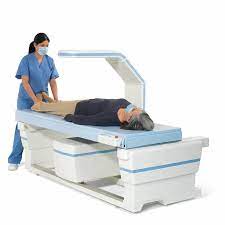When choosing between CT scans near me or the MRI scan near your work or home location, you must not only follow the doctor’s recommendation.
That is because when you are understanding the meaning and uses of each medical imaging test along with their differences, you get a peace of mind and assurance. Because it is highly possible to find both these scans as similar in deeply analysing your body and providing the same results.
And to prevent choosing the unnecessary scan, you must compare CT scan with the MRI. In this blog, you will recognise the uses, differences, and factors to consider when deciding between CT scan and MRI scan.
So, let’s begin.
What is a CT Scan?
Under CT scan, the radiologist uses X-Ray beams which create three-dimensional and clear images of your body parts. You must consider CT scan if you are expecting a quick, painless, and highly effective diagnosis of life-threatening medical conditions.
Now, let’s find out the situations when you must priorities searching for CT scans near me.
Common Reasons to Choose CT Scans:
- When you are experiencing emergencies which require fast and effective tests to determine the internal bleeding, organ injuries, or fractures.
- If you are diagnosing fractures, bone tumors, and joint problems.
- When you are detecting chest and abdominal conditions like pneumonia, pulmonary embolism, kidney stones, or appendicitis.
- If you are spotting the exact size and location of cancer tumors along with monitoring the cancer stages.
What is an MRI Scan?
Imaging tests like MRI scans rely on strong magnetic fields and radio waves to generate clear and precise images of your internal organs. Unlike CT scans, MRIs do not expose you through the radiation beams. This makes searching for an MRI scan near me an apt choice for people who are vulnerable to any kind of radiation effect. In addition, you must choose an MRI test to diagnose problems and infections in the soft tissues.
Now let’s consider the common uses of MRI scans.
Common Reasons to Consider MRI Scan:
- If you are confirming the risks of brain strokes, tumors, multiple sclerosis, and other neurological disorders.
- If you are detecting ligament tears, tendon injuries, and joint abnormalities.
- If you are understanding heart health or finding damage from heart attacks.
- If you are imaging soft tissues, including muscles, nerves, and internal organs.
As a matter of fact, CT scan is the best imaging test for diagnosing internal bleeding, infection, or problems in your bone or joint. It diagnoses lung, chest, or cancer diseases which requires you to find a CT scan.
Contrarily, searching for an MRI scan near me is convenient for analyzing risks and presence of brain, heart, and other crucial internal organs of your system.
Key Differences Between CT and MRI Scan
-
Technology:
- CT scans use X-rays to get clear images.
- MRI scans use magnetic fields and radio waves for similar reasons.
-
Imaging Focus:
- CT scans discover bones, lungs, and emergencies like internal bleeding.
- MRIs are better for diagnosing the brain, spinal cord, and muscles.
-
Speed:
- CT scans take just a few minutes to process results, and are ideal for emergencies.
- MRIs take 30 minutes or longer for the size and extent of the problems in a specific body area.
-
Radiation:
- CT scans expose you to ionizing radiation like x-rays which can restrict pregnant women or people with radiation allergies.
- MRIs are safer to follow-up after undergoing frequent imaging scans, particularly for pregnant women or children.
-
Cost:
- CT scans are generally more economical than MRIs.
- MRIs cost more for their advanced technologies and longer imaging time.
-
Patient Comfort:
- CT scans are quick and do not require you to sit still in an enclosed area.
- MRIs require patients to lie still in a narrow tube for an extended period, which can be challenging for those with claustrophobia.
Finding Imaging Centres: Factors to Consider
Here are a few factors to consider when choosing a CT or MRI scan near me.
-
Medical Condition:
- For added convenience, take your call and consult with your doctor to determine the ideal scan for your symptoms and the location of the body.
-
Time Sensitivity:
- If the diagnosis is urgent, a CT scan might be recommended due to its speed.
-
Cost and Insurance Coverage:
- Discuss the costs with your healthcare provider and check what your insurance covers.
-
Comfort and Accessibility:
- If claustrophobia or anxiety is an issue, inform your doctor. Open MRI machines or sedation options may be available.
Final Words
We hope you found this blog useful. As you see, both CT and MRI scans are invaluable diagnostic tools with valuable benefits. Choosing the right one depends on your specific medical needs, the urgency of the situation, and other factors like safety, cost, and comfort.
Always consult your healthcare provider and trust your instincts to determine the best imaging test for your condition.
Take the best decision — choose a facility with available MRI or CT scans near me.
